 Your new post is loading...
 Your new post is loading...

|
Scooped by
Gust MEES
January 15, 2:56 PM
|

|
Scooped by
Gust MEES
August 22, 2023 5:15 PM
|

|
Rescooped by
Gust MEES
from Learning & Technology News
June 8, 2022 8:34 AM
|
To make responsible choices you need to understand what could go wrong. The chart is not meant to dissuade but rather to make aware and encourage more careful and considered choices in a digital world. Feel free to use the chart as an everyday tool, as a conversation starter and as an outline for teaching. Learn more / En savoir plus / Mehr erfahren: https://www.scoop.it/topic/21st-century-learning-and-teaching/?&tag=Ethics
Via Nik Peachey

|
Scooped by
Gust MEES
February 21, 2020 9:32 PM
|
Reverse engineering, also called back engineering, is the process by which a man-made object is deconstructed to reveal its designs, architecture, or to extract knowledge from the object; similar to scientific research, the only difference being that scientific research is about a natural phenomenon.

|
Scooped by
Gust MEES
February 19, 2020 6:50 PM
|
Eine Sitte ist eine durch moralische Werte, Regeln oder soziale Normen bedingte, in einer bestimmten Gruppe oder Gemeinschaft entstandene und für den Einzelnen verbindlich geltende Verhaltensnorm (vgl. Ferdinand Tönnies, Die Sitte, 1908). Meist beruht sie auf Tradition und Gewohnheit (= „Usus"). Eine Sitte ist jedoch mehr als Gewohnheit; denn es gibt auch als schlecht bewertete Gewohnheiten (manchmal Unsitte genannt).

|
Scooped by
Gust MEES
February 1, 2020 6:22 PM
|

|
Scooped by
Gust MEES
August 17, 2019 6:39 PM
|
Dekadenz (von lateinisch „fallen", „sinken", französisch „Niedergang", „Verfall", über mittellateinisch decadentia) ist ein ursprünglich geschichtsphilosophischer Begriff, mit dem Veränderungen in Gesellschaften und Kulturen als Verfall, Niedergang beziehungsweise Verkommenheit gedeutet und kritisiert wurden. Er wurde in der französischen Historiographie zuerst für den Niedergang Roms gezielt verwendet. Die Kritik am Dekadenten emanzipiert sich vom hergebrachten religiösen Moralisieren.

|
Scooped by
Gust MEES
February 15, 2019 4:34 AM
|
Une rencontre placée sous le signe de l'éthique et du bien commun
Le Pape François et Brad Smith ont notamment évoqué au cours de leur rencontre les enjeux d'une intelligence artificielle qui doit être mise « au service du bien commun ». En 2018 à Davos, François avait appelé à ce que l'intelligence artificielle « contribue à servir l'humanité et à protéger notre foyer commun, plutôt que l'inverse ».
Smith et le Pape ont également échangé sur les moyens de réduire la fracture numérique dans le monde, un autre enjeu de taille. Le boss de la firme de Redmond a rappelé le besoin de « principes éthiques forts, de nouvelles lois et de formation pour les personnes ayant de nouvelles compétences, et même de réformes du marché du travail ».
Un prix sur l'IA au service de l'humanité
Microsoft et l'Académie pontificale pour la Vie (l'une des institutions du Vatican fondée par Jean-Paul II en 1994) ont aussi discuté de la création d'un prix international sur l'éthique dans l'intelligence artificielle. La récompense sera attribuée à la meilleure thèse de doctorat traitant de l'IA au service de l'humanité, rendue entre septembre 2018 et octobre 2019. Learn more / En savoir plus / Mehr erfahren: https://www.scoop.it/t/21st-century-learning-and-teaching/?&tag=Ethics https://www.scoop.it/t/21st-century-learning-and-teaching/?&tag=AI https://www.scoop.it/topic/securite-pc-et-internet/?&tag=AI

|
Scooped by
Gust MEES
November 21, 2018 4:19 PM
|
Nous essayons d’être persuasifs lorsque nous présentons des arguments, qu’ils soient oraux ou écrits. Le public doit comprendre notre point de vue, avant même d’accepter nos arguments. Voilà en quoi consiste la rhétorique, dans laquelle les autres adoptent notre point de vue. Et qui de mieux qu’Aristote pour expliquer la rhétorique ? Les études de l’élève de Platon se sont concentrées sur la rhétorique. Ainsi, la rhétorique d’Aristote se compose de trois catégories : le pathos, l’éthos et le logos.
Le pathos, l’ethos et le logos sont les trois piliers fondamentaux de la rhétorique d’Aristote. Ces trois catégories sont considérées aujourd’hui comme différentes façons de convaincre un auditoire sur un sujet, une croyance ou une conclusion en particulier. Chaque catégorie est différente des autres. Néanmoins, connaître les trois nous aidera à impliquer les publics que nous abordons. Learn more / En savoir plus / Mehr erfahren: http://www.scoop.it/t/21st-century-learning-and-teaching/?tag=Irony http://www.scoop.it/t/21st-century-learning-and-teaching/?tag=Rhetorik

|
Scooped by
Gust MEES
November 16, 2018 2:32 PM
|
Als Perfidie, auch Perfidität ( lat. perfidus = treulos, wortbrüchig, niederträchtig) beziehungsweise mit dem davon abgeleiteten Adjektiv perfide, werden Handlungen einer Person oder Personengruppe bezeichnet, die vorsätzlich das Vertrauen oder die Loyalität einer anderen Person oder Personengruppe ausnutzen, um beispielsweise in geschäftlichen Beziehungen oder in militärischen Auseinandersetzungen einen Vorteil zu erlangen.
Als Perfidie, auch Perfidität (lat. perfidus = treulos, wortbrüchig, niederträchtig) beziehungsweise mit dem davon abgeleiteten Adjektiv perfide, werden Handlungen einer Person oder Personengruppe bezeichnet, die vorsätzlich das Vertrauen oder die Loyalität einer anderen Person oder Personengruppe ausnutzen, um beispielsweise in geschäftlichen Beziehungen oder in militärischen Auseinandersetzungen einen Vorteil zu erlangen. Das bewusste Erzeugen eines solchen Vertrauens durch entsprechende Maßnahmen ist dabei oft ein wesentlicher Teil einer perfiden Handlung. Learn more / En savoir plus / Mehr erfahren: https://www.scoop.it/t/21st-century-learning-and-teaching/?&tag=Moral

|
Scooped by
Gust MEES
April 28, 2018 5:27 PM
|
As you might expect, Brin expects Alphabet and others to find more uses for AI. But he also acknowledges that the technology brings possible downsides. “Such powerful tools also bring with them new questions and responsibilities,” he writes.
AI tools might change the nature and number of jobs, or be used to manipulate people, Brin says—a line that may prompt readers to think of concerns around political manipulation on Facebook. Safety worries range from “fears of sci-fi style sentience to the more near-term questions such as validating the performance of self-driving cars,” Brin writes.
All that might sound like a lot for Google and the tech industry to contemplate while also working at full speed to squeeze profits from new AI technology. Even some Google employees aren’t sure the company is on the right track—thousands signed a letter protesting the company’s contract with the Pentagon to apply machine learning to video from drones. Learn more / En savoir plus / Mehr erfahren: https://www.scoop.it/t/21st-century-learning-and-teaching/?&tag=AI https://www.scoop.it/t/21st-century-learning-and-teaching/?&tag=Ethics

|
Scooped by
Gust MEES
September 13, 2017 10:21 AM
|
Preparing a child for the world that doesn’t yet exist is not an easy task for any teacher. Step back and look at that picture from a broad perspective. What are the critical 21st-century skills every learner needs to survive and succeed in our world? What abilities and traits will serve them in a time that’s changing and developing so rapidly?
They want to be challenged and inspired in their learning. They want to collaborate and work with their peers. They want to incorporate the technology they love into their classroom experiences as much as they can. In short, they have just as high a set of expectations of their educators as their educators have of them.
How Are Educators Responding?
The Australian Curriculum Assessment and Reporting Authority, (ACARA), have identified the following as the General Capabilities they see as essential for learners:
Critical and creative thinking
Personal and social capability
Ethical understanding
Intercultural understanding
Information and communication technology capability
Literacy
Numeracy
Learn more / En savoir plus / Mehr erfahren. http://www.scoop.it/t/21st-century-learning-and-teaching/?&tag=modern-education

|
Scooped by
Gust MEES
January 26, 2017 3:42 PM
|
Pro Bono Publico is also used in the United Kingdom to describe the central motivation of large organizations such as the National Health Service, and various NGOs, which exist "for the public good", rather than for shareholder profit but it equally or even more applies to the private sector where professionals like lawyers, bankers offer their specialist skills for the benefit of community or NGOs.
Pro bono publico (English: for the public good; usually shortened to pro bono) is a Latin phrase for professional work undertaken voluntarily and without payment. Unlike traditional volunteerism, it is service that uses the specific skills of professionals to provide services to those who are unable to afford them.
Pro Bono Publico is also used in the United Kingdom to describe the central motivation of large organizations such as the National Health Service, and various NGOs, which exist "for the public good", rather than for shareholder profit but it equally or even more applies to the private sector where professionals like lawyers, bankers offer their specialist skills for the benefit of community or NGOs. Learn more / En savoir plus / Mehr erfahren: http://www.scoop.it/t/21st-century-learning-and-teaching/?tag=Ethics
|

|
Scooped by
Gust MEES
October 6, 2023 11:00 AM
|

|
Rescooped by
Gust MEES
from Education 2.0 & 3.0
August 19, 2022 12:11 PM
|

|
Scooped by
Gust MEES
May 5, 2021 8:56 AM
|
Most people think about ethics, at least some of the time. Ethics comes to mind during ethics training, ethics conversations, when people are thrown into ethically complex situations, and when trying to understand current events.
While we may think about ethics from time to time, ethical thinking is different. It is the process of actively considering how our choices align with ethical principles, and how those choices could impact our constituents. It is proactive, intentional and consistently applied.
Ethical Thinking Isn’t Automatic
Staying competent in our leadership includes moving from thinking about ethics to thinking with ethics – in day-to-day decisions and actions. Most things we handle will have an ethical component at some point, and we’ll need to be ready for it. We’ll need to recognize it, think through the implications, and ultimately make an ethical choice. Learn more / En savoir plus / Mehr erfahren: https://www.scoop.it/t/21st-century-learning-and-teaching/?&tag=Frank+SONNENBERG https://www.scoop.it/t/21st-century-learning-and-teaching/?&tag=Character https://www.scoop.it/t/21st-century-learning-and-teaching/?q=ethics https://www.scoop.it/t/21st-century-learning-and-teaching/?tag=Values https://www.scoop.it/t/21st-century-learning-and-teaching/?tag=Growth+Mindset

|
Scooped by
Gust MEES
February 19, 2020 6:54 PM
|
Dieser Artikel oder Abschnitt bedarf einer Überarbeitung. Näheres sollte auf der Bitte hilf mit, ihn zu Diskussionsseite angegeben sein. verbessern, und entferne anschließend diese Markierung. In diesem Artikel oder Abschnitt fehlen noch folgende wichtige Informationen: Es fehlt die Begriffsgeschichte. Die fängt mit den alten Griechen und Augustinus („caritas") an und führt über einen Riesenbogen bis in die Gegenwart.

|
Scooped by
Gust MEES
February 12, 2020 6:07 PM
|
Das Sankt-Florian-Prinzip (österreichisch: Floriani-Prinzip) oder die Sankt-Florian-Politik bezeichnet Verhaltensweisen, potentielle Bedrohungen oder Gefahrenlagen nicht zu lösen, sondern auf andere zu verschieben. Die englischsprachige Entsprechung ist , ein Akronym für „Not in my backyard". Früher war es üblich, die Hilfe des Heiligen Florian anzurufen, der als Schutzpatron für die Abwendung von Feuer und Dürre zuständig ist.

|
Scooped by
Gust MEES
August 17, 2019 6:46 PM
|
The word decadence, which at first meant simply "decline" in an abstract sense, is now most often used to refer to a perceived decay in standards, morals, dignity, religious faith, honor, discipline, or skill at governing among the members of the elite of a very large social structure, such as an empire or nation state.
The word decadence, which at first meant simply "decline" in an abstract sense, is now most often used to refer to a perceived decay in standards, morals, dignity, religious faith, honor, discipline, or skill at governing among the members of the elite of a very large social structure, such as an empire or nation state. By extension, it may refer to a decline in art, literature, science, technology, and work ethics, or (very loosely) to self-indulgent behavior.
Usage of the term sometimes implies moral censure, or an acceptance of the idea, met with throughout the world since ancient times, that such declines are objectively observable and that they inevitably precede the destruction of the society in question; for this reason, modern historians use it with caution. The word originated in Medieval Latin (dēcadentia), appeared in 16th-century French, and entered English soon afterwards. It bore the neutral meaning of decay, decrease, or decline until the late 19th century, when the influence of new theories of social degeneration contributed to its modern meaning.
In literature, the Decadent movement—late nineteenth century fin de siècle writers who were associated with Symbolism or the Aesthetic movement—was first given its name by hostile critics. Later it was triumphantly adopted by some of the writers themselves. The Decadents praised artifice over nature and sophistication over simplicity, defying contemporary discourses of decline by embracing subjects and styles that their critics considered morbid and over-refined. Some of these writers were influenced by the tradition of the Gothic novel and by the poetry and fiction of Edgar Allan Poe. Learn more / En savoir plus / Mehr erfahren: https://www.scoop.it/t/21st-century-learning-and-teaching/?&tag=Frank+SONNENBERG http://www.scoop.it/t/21st-century-learning-and-teaching/?&tag=Character http://www.scoop.it/t/21st-century-learning-and-teaching/?q=ethics https://www.scoop.it/t/21st-century-learning-and-teaching/?tag=Values http://www.scoop.it/t/21st-century-learning-and-teaching/?tag=Growth+Mindset

|
Scooped by
Gust MEES
February 24, 2019 3:56 PM
|
Der Begriff Suggestion wurde im 17./18. Jahrhundert eingeführt und bezeichnet die manipulative Beeinflussung einer Vorstellung oder Empfindung mit der Folge, dass die Manipulation nicht wahrgenommen wird oder zumindest zeitweise für das Bewusstsein nicht abrufbereit ist. Etymologisch ist er zurückführbar auf das lateinische Substantiv suggestio, -onis, was so viel bedeutet wie Hinzufügung, Eingebung oder Einflüsterung, oder auf das lateinische Verb suggerĕre ( zuführen, unterschieben).

|
Scooped by
Gust MEES
November 26, 2018 12:39 PM
|

|
Scooped by
Gust MEES
November 16, 2018 2:40 PM
|
In the context of war, perfidy is a form of deception in which one side promises to act in good faith (such as by raising a flag of truce) with the intention of breaking that promise once the unsuspecting enemy is exposed (such as by coming out of cover to attack the enemy coming to take the "surrendering" prisoners into custody).
In the context of war, perfidy is a form of deception in which one side promises to act in good faith (such as by raising a flag of truce) with the intention of breaking that promise once the unsuspecting enemy is exposed (such as by coming out of cover to attack the enemy coming to take the "surrendering" prisoners into custody). Perfidy constitutes a breach of the laws of war and so is a war crime, as it degrades the protections and mutual restraints developed in the interest of all parties, combatants, and civilians. Learn more / En savoir plus / Mehr erfahren: https://www.scoop.it/t/21st-century-learning-and-teaching/?&tag=Moral

|
Scooped by
Gust MEES
September 14, 2018 8:25 PM
|
Contemporary extremism is designed to increase polarization. One tactic is to twist frames. For example, “ideological diversity” has been deployed to suggest that people who hold conservative viewpoints experience a loss of opportunity similar to those who have faced systemic racism and sexism. But this isn’t about the history of economic inequality in the US. It’s a dogwhistle. It’s about using nominal conservatism as a cloak to promote toxic masculinity and white supremacy. It’s about extremists using conservatives. And it’s about intentionally twisting historical pressure to diversify newsrooms and Silicon Valley to open the Overton Window. Fundamentally, it’s a technique to grab power by gaslighting the public and making reality seem fuzzy. Learn more / En savoir plus / Mehr erfahren: https://www.scoop.it/t/21st-century-learning-and-teaching/?&tag=press

|
Scooped by
Gust MEES
February 13, 2018 3:09 PM
|
De gros titres, tels que "Algorithmes - les vrais maîtres du monde ?" ou "Les algorithmes influencent-ils notre quotidien ?", sont à la une des journaux, notamment dans le contexte du Big Data. Dans ce dossier, nous expliquerons ce que sont les algorithmes, comment ils fonctionnent et à quoi ils servent. Nous aborderons également les aspects éthiques.
Un algorithme est une instruction ou une règle logique et explicite sur la manière dont un problème est à résoudre, et se compose de différentes étapes exécutées l'une après l'autre ou simultanément. Pour la majorité des algorithmes, une entrée donnée conduit toujours à la même sortie. Dans la plupart des cas, les algorithmes s'appliquent sous forme de logiciels informatiques, mais ils peuvent également être formulés en langage humain. L'exemple le plus illustre d'un algorithme de notre quotidien est une recette de cuisine.
D'où vient le nom ?
Le terme algorithme est dérivé du nom du mathématicien et géographe korasmien Muhammad Ibn Musa al-Khuwarizmi, originaire de la région de l'Iran d'aujourd'hui, qui a passé la majeure partie de sa vie à Bagdad. En 825, il écrit un manuel sur les chiffres indiens et y explique également le fonctionnement des algorithmes. Le livre sur les chiffres, que nous connaissons aujourd'hui sous le nom de "chiffres arabes", a été traduit en latin au 12e siècle. La dernière partie de son nom (al-Khuwarizmi) a été traduite par "Algorismi". Les premiers mots étaient "Dixit Algorismi" (Algorismi a dit), d'où s'est finalement dérivé le terme algorithme.
Learn more / En savoir plus / Mehr erfahren: https://www.scoop.it/t/21st-century-learning-and-teaching/?&tag=Algorithm https://www.scoop.it/t/21st-century-learning-and-teaching/?&tag=Big+Data...

|
Scooped by
Gust MEES
September 7, 2017 11:36 PM
|
If you define winning as getting the upper hand, backing your opponent into a corner, and winning at any expense, you’ve got it all wrong. You may win in the short term, but think about the relationship going forward. Do those actions build trust, teamwork, and respect? I think not. You’ve probably created enough animosity, distrust, and jealousy to last a lifetime. In other words, you may have won the battle, but lost the war. There’s a better way…winning doesn’t have to be at someone’s expense.
Compromise: A Win-Win Strategy
Some people need to win at all costs because their ego won’t accept anything less. They’d rather win personally than accomplish something meaningful. Compromise isn’t a synonym for surrender; it’s a winning battle plan. Learn more / En savoir plus / Mehr erfahren: http://www.scoop.it/t/21st-century-learning-and-teaching/?&tag=Win-Win-Situation http://www.scoop.it/t/21st-century-learning-and-teaching/?&tag=Frank+SONNENBERG
|



 Your new post is loading...
Your new post is loading...




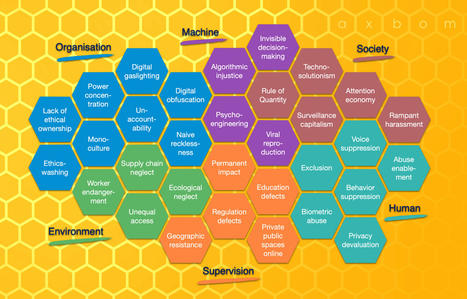

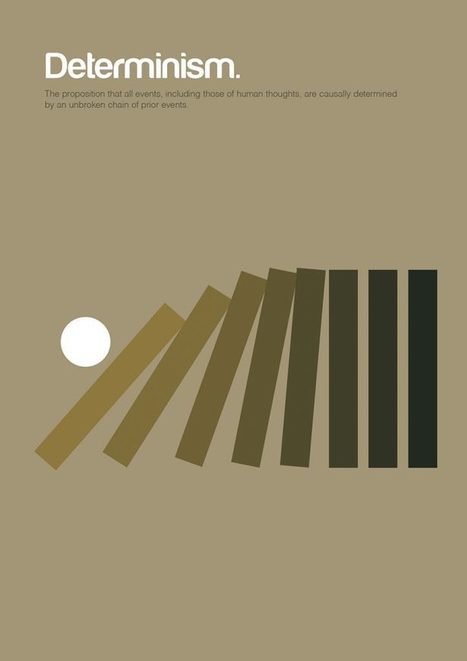



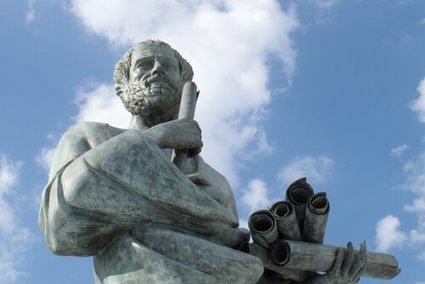




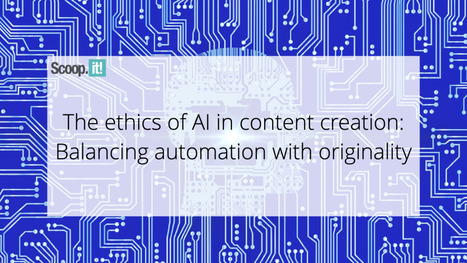

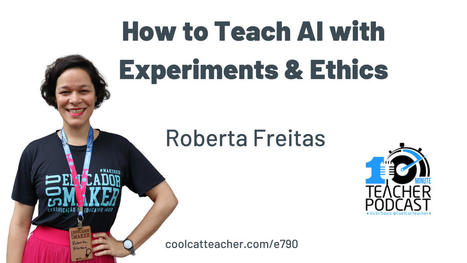









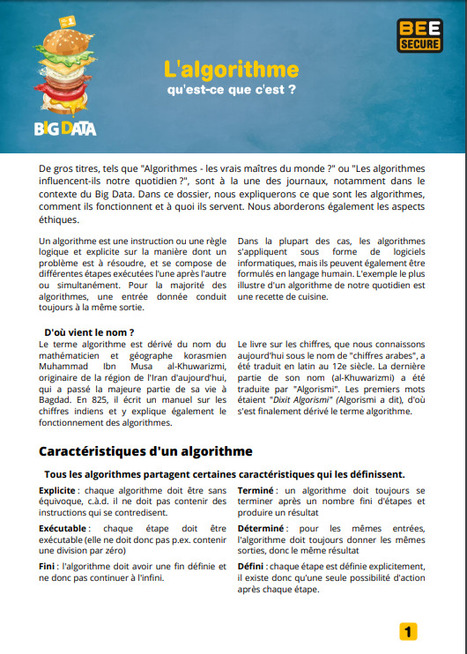
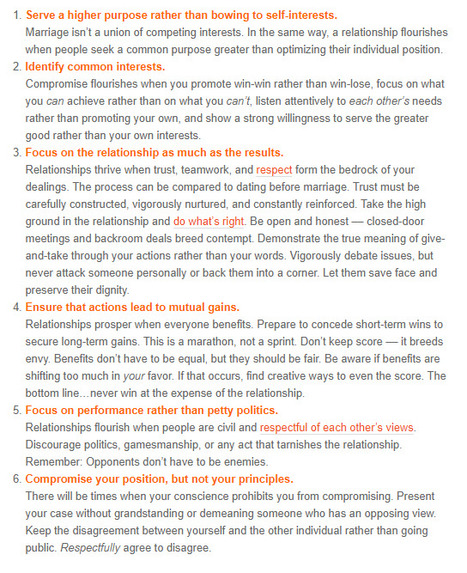





Image created by ChatGPT: click image to enlarge, please. Entfessle die Kraft der KI kostenlos auf deinem Desktop! 🚀Bist du bereit, deine Produktivität, Kreativität und Problemlösungsfähigkeiten auf ein neues Level zu heben? Lerne ChatGPT kennen – das KI-Tool, das unsere Art zu arbeiten, zu lernen und zu innovieren revolutioniert. Das Beste daran: Du kannst es…
Learn more / En savoir plus / Mehr erfahren:
https://www.scoop.it/topic/21st-century-learning-and-teaching?tag=Gust-MEES
https://www.scoop.it/topic/21st-century-learning-and-teaching?tag=ChatGPT